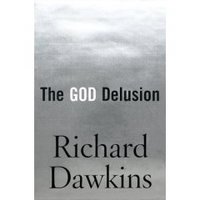
Dawkins' handling of the Ontological Argument for the existence of God shows that he likely does not even understand the argument. And even his response that comes from his misunderstanding is poorly written and logically incoherent.
Here, briefly, I will show that and how Dawkins seems not to have a clue about OA. And note: to show that Dawkins' criticism of OA fails miserably should not be construed as my arguing that OA proves there is a God. To really enter into the philosophical dialogue re. OA, begin
here.Then, go
here.
Then,
here.
Now, some thoughts on Dawkins and what he writes about OA.
- He calls OA an "infantile argument." But Dawkins does not understand OA (as we shall see). And note: Dawkins is a big-time emotivist who loves ad hominem abusives. Thus it is Dawkins who is philosophically "infantile" as regards OA. And the ad hominem language is appropriate to a whining infant. Please note that Dawkinsian emotivism adds nothing to his "argument" against OA.
- Dawkins quotes Bertrand Russell as once saying, "Great Scott, the OA is sound!" What Dawkins misses is precisely why Russell would think this.
- Dawkins quotes philosopher Norman Malcolm as critical of OA. It is true that Malcolm agreed with Kant that "existence is not a predicate." But Malcolm himself put forth a version of OA which can be attributed to Anselm. Anselm, says Malcolm, had two versions of OA, the second of which puts forth "necessary existence" as defeating Kant's objection. Dawkins "quote mines" Malcolm for his own purposes, perhaps not realizing that Malcolm actually supports Anselm's second version of OA as proving the existence of God. But all of this is simply common knowledge to philosophers, of which Dawkins is presumably ignorant.
- Dawkins cites Anselm's contemporary Gaunilo, who offered a criticism of Anselm's OA. Dawkins then cites the supposed refutation by Douglas Gasking, which is similar, says Dawkins, to Gaunilo's objection. Gasking's idea that a most perfect being would be even more perfect if it created a universe without itself existing is a non-logical possibility, like "square circle." Gaunilo thinks Anselm believes we can just imagine a most perfect "anything" and that thereby that thing must exist. Such as, e.g., a "most perfect island." But of course "existence" is not an essential attribute of "most perfect island," but arguably it is of "a being a greater than which cannot be conceived." Both Gaunilo and Gasking miss the point of Anselm's argument. Kant understood Anselm; they do not.
- Dawkins closes his "refutation" of OA with some "funny 'proofs'" of God's existence. Why? I have a guess, but here I am admittedly psychoanalyzing Dawkins. My guess is that Dawkins' somehow knows that he doesn't have a clue about OA. After all, he's not a philosopher, which is easy to see. So, he gets funny and weird. But no matter how humorous Dawkins is, it adds nothing to his "argument" against OA.
- Dawkins, in arguing against OA, has merely set up a straw man, knocked it down, as his colleagues stand in awe of just how "brite" people can really be without God.
Speaking of Dawkins' colleagues, I confess to being astounded that they find him to be so bright? Steven Pinker (a man I admire, having read his
The Blank Slate a few years ago), says on the back cover of GD: "Dawkins arguments... are passionately stated and poetically expressed but are rooted in reason and evidence." Huh? What? Are we reading the same book? And, note that philosophers are going to really rise up if we begin to raise the thorny issue of "poetic truth." But Dawkins does seem passionate, and I don't fault him for that. In this regard GD seems at times like it is written by "Mr. Furious" [of "Mystery Men"].
Matt Ridley says Dawkins GD is "a resounding trumpet blast for truth." I don't think so. At least the OA section reads more like a few bad notes played by a beginning guitarist on a Teisco that has a warped neck.
Phillip Pullman says "Dawkins hits... with all the power that reason can wield, demolishing... preposterous attempts to prove the existence of God." But if this really is "all the power that reason can wield" then, I tell you, we need God more than ever.
Desmond Morris says, "This is a brave and important book." I find nothing "brave" about Dawkins' OA section. Honestly, it gets a "C-" in my History of Western Philosophy class. It is positively cowardly in its refusal to actually engage all the OA scholarship readily available to anyone possessing the requisite philosophical smarts.
Penn and Teller write: "GD is smart, compasionate, and true like ice, like fire. If this book doesn't change the world, we're all screwed." "Smart?" Which serves to show that this word is vague. "Compassionate?" Now THAT is really funny. "True like ice, like fire?" Which means... what? It will leave us "cold?" Or, as "fire" and "ice" cannot coexist, so Dawkins' reasoning is filled with contradictions? And, finally, if THIS book "changes the world," because this is what "smart" means and this is what "compassion" means, then I agree: we're all screwed.












